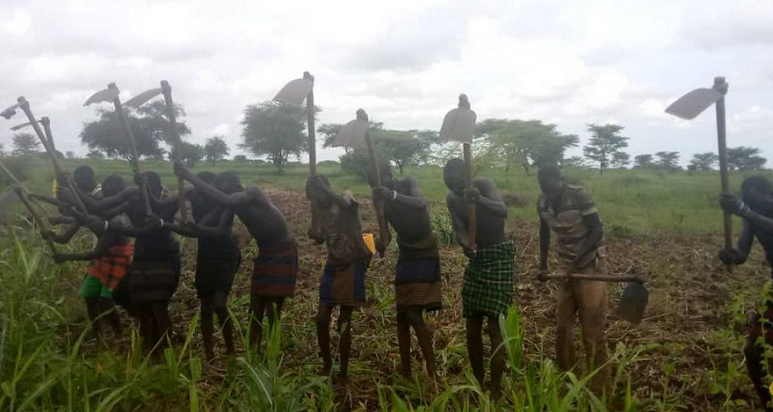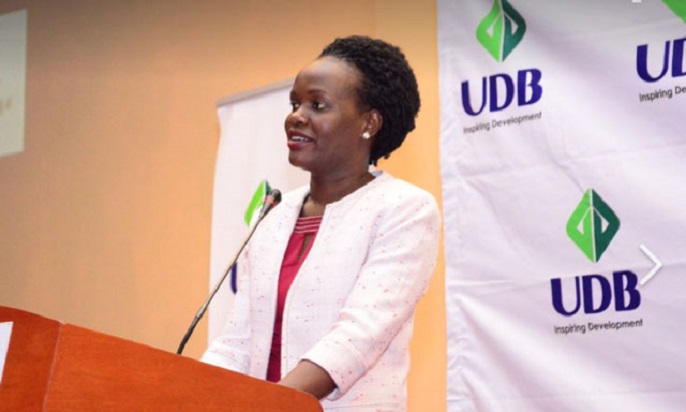Karamojong reformed warriors who have ventured into agriculture in Moroto district.
Elders in Kotido District are seeking 28,000 acres of land for commercial farming to address food insecurity.
Despite an abundance of uncultivated farmland, Karamoja continues to be trapped in a food crisis since the region cannot independently produce food that can sustain its livelihoods.
John Bosco Akore, the Secretary of Kotido Elders Council said they resolved to acquire 200 acres of land from the fourteen clans within Kotido district for joint farming. He says that they are optimistic that they will reap big from the harvest.
Akore says they resolved as a council to venture into a farming project in order to fight redundancy among the youth and also increase food production in the region.
He noted that low yields and production levels, and lack of access to quality seeds are some of the issues affecting the farmers in Kotido.
Norman Lokuda a farmer in Panyangara sub-county in Kotido District noted that Karamoja has massive potential for improving agricultural outputs and reducing rural poverty.
Lokuda said that the government needs to focus on increasing agricultural production rather than sending relief to the region which sometimes doesn’t reach every household.
“We are capable of producing food that can be supplied all over Karamoja, the only problem is that farmers are not empowered, if the government could support us with seedlings and farm tools, raiding that is driven by hunger would remain history in Karamoja’’ Lokuda lamented.
Emmanuel Longok another resident says that when the clan members agree to pool the land for joint cultivation, it will obviously result in an increase in food production.
He said that an individual farmer may not be able to take up the activities on his own because the costs involved in commercial farming are quite high.
But, Mariko Loduk the an elder in Nakaal village in Panyangara sub-county opposes the idea saying it will be very difficult to manage such farms without enough resources.
Loduk said that before implementing such projects, they should first deal with the problem of mindset changes among the local community if the project is to achieve its goals.
He noted that several NGOs like the Food and Agriculture Organization have been doing the same but because of poor attitudes, some people started stealing crops from the garden before harvests.
However, Paul Komol the LCV Chairperson Kotido, says the community is interested in agriculture but they are always frustrated by the changes in climate.
Komol said that they have been advocating for farmers to embark on commercial agriculture but the problem has been the lack of farm equipment for cultivation.
Karamoja currently is facing a period of serious food insecurity, and this is expected to continue until the annual harvest beginning in August 2022.
-URN





